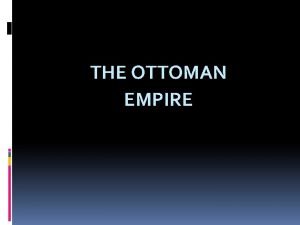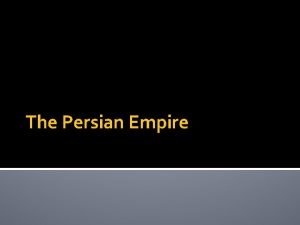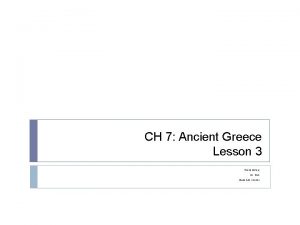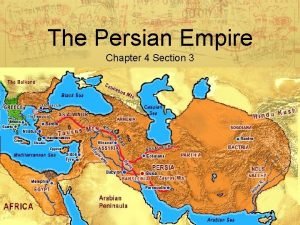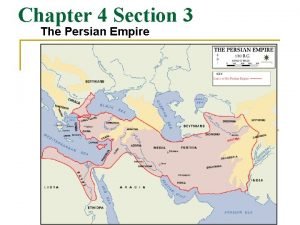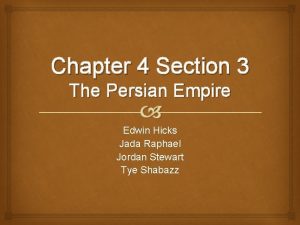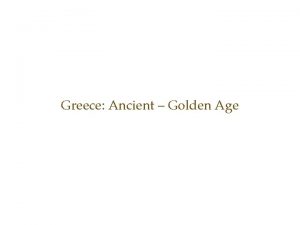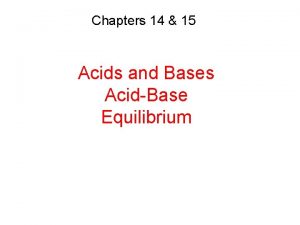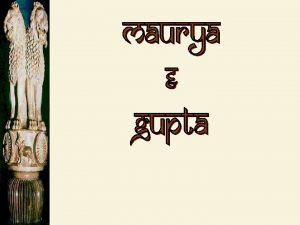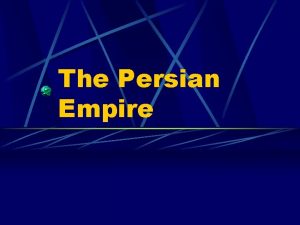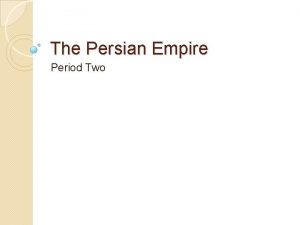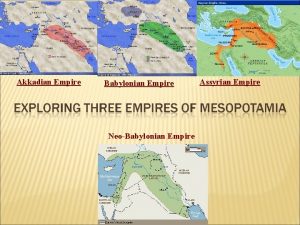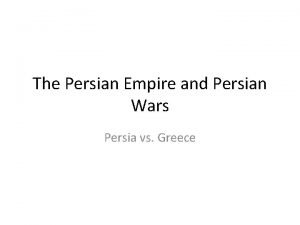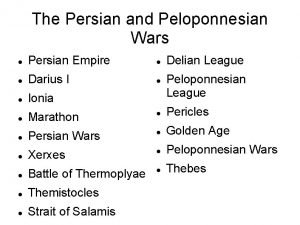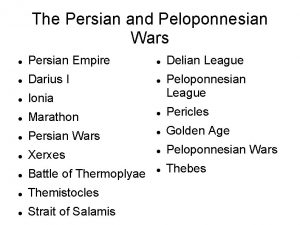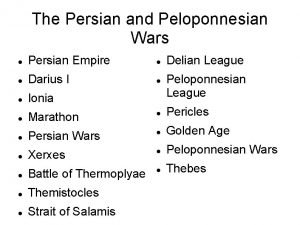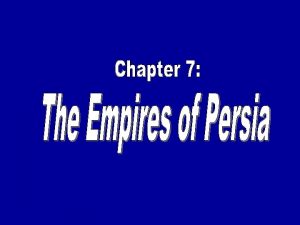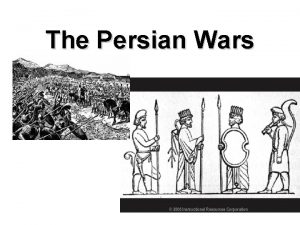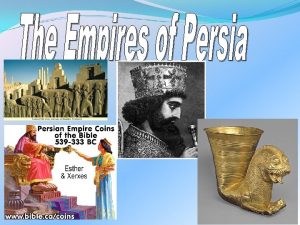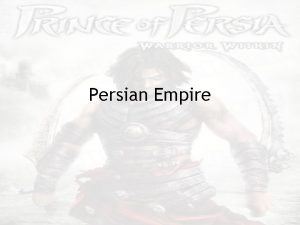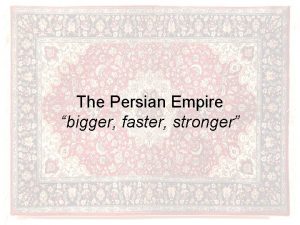The Persian Empire Strong Persian leaders conquered and
















- Slides: 16


The Persian Empire Strong Persian leaders conquered and ruled a vast empire for more than 200 years.

The Persian Empire (cont. ) • After the collapse of the Assyrian Empire, the Chaldean king Nebuchadnezzar II made Babylonia the leading power in western Asia. – The capital of Babylonia was one of the greatest cities in the ancient world.

The Persian Empire (cont. ) • Babylonia was conquered by the Persians, an Indo-European people from today’s Iran. – The nomadic Persians were unified under one ruling family with dynamic leaders. The Persian Empire, 500 B. C.

The Persian Empire (cont. ) • In 539 B. C. , Cyrus captured Babylonia. He was known as Cyrus “the Great” because of his wisdom and restraint toward his conquered foes. • Cyrus respected other civilizations and used Assyrian, Egyptian, and Babylonian designs for building his palaces.

The Persian Empire (cont. ) • Cambyses sought to extend the empire by successfully invading Egypt. • Darius added territory in western India and Thrace, today’s Greece. He divided the empire into provinces called satrapies. • Each satrapy was ruled by a satrap who collected taxes, provided justice, and recruited soldiers.

The Persian Empire (cont. ) • The Royal Road stretched across the Persian kingdom and allowed for communication and travel. This communication and travel sustained the Persian Empire. • The power of the Persian Empire came from its military. Its professional soldiers were known as the Immortals because when one was killed, he was immediately replaced.

The Persian Empire (cont. ) • Persian religion was known as Zoroastrianism. This monotheistic religion was started by the prophet Zoroaster, who wrote his teachings in the Zend Avesta. • The Persian Empire was weakened by struggles over succession to the monarchy. The Empire finally fell to Alexander the Great and the Greeks in the 330 s B. C.

What caused the Persian Empire to decline after the death of Darius? A. The Royal Road fell into disrepair. B. Succession of Darius was uncertain, causing internal struggles. C. The rise of Zoroastrianism divided people. D. They were defeated in battle by the Greeks. A. A B. B C. C D. D


satrapy one of the 20 provinces into which Darius divided the Persian Empire

satrap “protector of the Kingdom”; the governor of a province (satrapy) of the Persian Empire under Darius

monarchy government by a sovereign ruler such as a king or queen

restraint a controlling force

sought made an attempt; tried

sustained supported or held up
 Ephesians 6:10-20 nkjv
Ephesians 6:10-20 nkjv The ottoman empire grew and expanded after it conquered the
The ottoman empire grew and expanded after it conquered the The rise of the persian empire
The rise of the persian empire How did persian rulers unite their vast empire?
How did persian rulers unite their vast empire? Cambysus
Cambysus The persian empire chapter 4 section 3
The persian empire chapter 4 section 3 Chapter 4 section 3 guided reading the persian empire
Chapter 4 section 3 guided reading the persian empire Persian empire trade routes
Persian empire trade routes Chapter 4 section 3 the persian empire
Chapter 4 section 3 the persian empire Parchemnet
Parchemnet Persian empire golden age
Persian empire golden age How to remember strong acids and strong bases
How to remember strong acids and strong bases Strong acid strong base titration curve
Strong acid strong base titration curve Net ionic equation for strong acid and strong base
Net ionic equation for strong acid and strong base Leaders of songhai empire
Leaders of songhai empire Everyone needs comoansion
Everyone needs comoansion Venn diagram of mauryan and gupta empires
Venn diagram of mauryan and gupta empires

